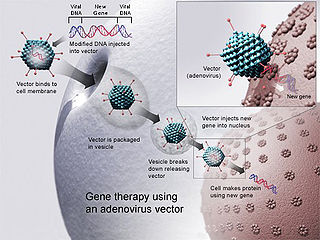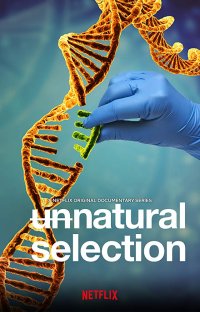The term modifications in genetics refers to both naturally occurring and engineered changes in DNA. Incidental, or natural mutations occur through errors during replication and repair, either spontaneously or due to environmental stressors. Intentional modifications are done in a laboratory for various purposes, developing hardier seeds and plants, and increasingly to treat human disease. The use of gene editing technology remains controversial.

Human genetic enhancement or human genetic engineering refers to human enhancement by means of a genetic modification. This could be done in order to cure diseases, prevent the possibility of getting a particular disease, to improve athlete performance in sporting events, or to change physical appearance, metabolism, and even improve physical capabilities and mental faculties such as memory and intelligence. These genetic enhancements may or may not be done in such a way that the change is heritable.

A designer baby is a baby whose genetic makeup has been selected or altered, often to exclude a particular gene or to remove genes associated with disease. This process usually involves analysing a wide range of human embryos to identify genes associated with particular diseases and characteristics, and selecting embryos that have the desired genetic makeup; a process known as preimplantation genetic diagnosis. Screening for single genes is commonly practiced, and polygenic screening is offered by a few companies. Other methods by which a baby's genetic information can be altered involve directly editing the genome before birth, which is not routinely performed and only one instance of this is known to have occurred as of 2019, where Chinese twins Lulu and Nana were edited as embryos, causing widespread criticism.
Do-it-yourself biology is a biotechnological social movement in which individuals, communities, and small organizations study biology and life science using the same methods as traditional research institutions. DIY biology is primarily undertaken by individuals with limited research training from academia or corporations, who then mentor and oversee other DIY biologists with little or no formal training. This may be done as a hobby, as a not-for-profit endeavor for community learning and open-science innovation, or for profit, to start a business.

Genome editing, or genome engineering, or gene editing, is a type of genetic engineering in which DNA is inserted, deleted, modified or replaced in the genome of a living organism. Unlike early genetic engineering techniques that randomly inserts genetic material into a host genome, genome editing targets the insertions to site-specific locations. The basic mechanism involved in genetic manipulations through programmable nucleases is the recognition of target genomic loci and binding of effector DNA-binding domain (DBD), double-strand breaks (DSBs) in target DNA by the restriction endonucleases, and the repair of DSBs through homology-directed recombination (HDR) or non-homologous end joining (NHEJ).

Jennifer Anne Doudna is an American biochemist who has done pioneering work in CRISPR gene editing, and made other fundamental contributions in biochemistry and genetics. Doudna was one of the first women to share a Nobel in the sciences. She received the 2020 Nobel Prize in Chemistry, with Emmanuelle Charpentier, "for the development of a method for genome editing." She is the Li Ka Shing Chancellor's Chair Professor in the department of chemistry and the department of molecular and cell biology at the University of California, Berkeley. She has been an investigator with the Howard Hughes Medical Institute since 1997.
Joe Egender, is an American actor, producer, and screenwriter. He is best known for his collaborations with The Butcher Brothers, Holy Ghost People, and his television roles.

A gene drive is a natural process and technology of genetic engineering that propagates a particular suite of genes throughout a population by altering the probability that a specific allele will be transmitted to offspring. Gene drives can arise through a variety of mechanisms. They have been proposed to provide an effective means of genetically modifying specific populations and entire species.

Jo Zayner is a biohacker, artist, and scientist best known for their self-experimentation and work making hands-on genetic engineering accessible to a lay audience, including CRISPR.
Human germline engineering is the process by which the genome of an individual is edited in such a way that the change is heritable. This is achieved by altering the genes of the germ cells, which then mature into genetically modified eggs and sperm. For safety, ethical, and social reasons, there is broad agreement among the scientific community and the public that germline editing for reproduction is a red line that should not be crossed at this point in time. There are differing public sentiments, however, on whether it may be performed in the future depending on whether the intent would be therapeutic or non-therapeutic.

Intellia Therapeutics, Inc. is an American clinical-stage biotechnology company focused on developing novel, potentially curative therapeutics leveraging CRISPR-based technologies. The company's in vivo programs use intravenously administered CRISPR as the therapy, in which the company's proprietary delivery technology enables highly precise editing of disease-causing genes directly within specific target tissues. Intellia's ex vivo programs use CRISPR to create the therapy by using engineered human cells to treat cancer and autoimmune diseases.
Aaron James Traywick was an American businessman and life extension activist in the transhumanism and biohacking communities. He sought to develop gene therapies to make inexpensive treatments available for incurable conditions such as AIDS and the herpes simplex virus. His lack of any medical training and his unconventional methods—such as broadcasting an associate injecting himself with an "untested experimental gene therapy", then later doing the same to himself in an onstage public demonstration—drew widespread criticism.

The He Jiankui affair is a scientific and bioethical controversy concerning the use of genome editing following its first use on humans by Chinese scientist He Jiankui, who edited the genomes of human embryos in 2018. He became widely known on 26 November 2018 after he announced that he had created the first human genetically edited babies. He was listed in Time magazine's 100 most influential people of 2019. The affair led to ethical and legal controversies, resulting in the indictment of He and two of his collaborators, Zhang Renli and Qin Jinzhou. He eventually received widespread international condemnation.

He Jiankui is a Chinese biophysicist who was an associate professor in the Department of Biology of the Southern University of Science and Technology (SUSTech) in Shenzhen, China. Earning his Ph.D. from Rice University in Texas on protein evolution, including that of CRISPR, He learned gene-editing techniques (CRISPR/Cas9) as a postdoctoral researcher at Stanford University in California.

CRISPR gene editing standing for "Clustered Regularly Interspaced Short Palindromic Repeats" is a genetic engineering technique in molecular biology by which the genomes of living organisms may be modified. It is based on a simplified version of the bacterial CRISPR-Cas9 antiviral defense system. By delivering the Cas9 nuclease complexed with a synthetic guide RNA (gRNA) into a cell, the cell's genome can be cut at a desired location, allowing existing genes to be removed and/or new ones added in vivo.
Locus Biosciences is a clinical-stage pharmaceutical company, founded in 2015 and based in Research Triangle Park, North Carolina. Locus develops phage therapies based on CRISPR–Cas3 gene editing technology, as opposed to the more commonly used CRISPR-Cas9, delivered by engineered bacteriophages. The intended therapeutic targets are antibiotic-resistant bacterial infections.

Human Nature is a 2019 documentary film directed by Adam Bolt and written by Adam Bolt and Regina Sobel. Producers of the film include Greg Boustead, Elliot Kirschner and Dan Rather.
The eradication or abolition of suffering is the concept of using biotechnology to create a permanent absence of involuntary pain and suffering in all sentient beings.

Biohackers is a German techno-thriller television series created by Christian Ditter that premiered on Netflix on 20 August 2020. A week after its release, the series was renewed for a second season, which was released on 9 July 2021.
Make People Better is a 2022 documentary film about the use of genetic engineering to enhance two twins girls to be immune to HIV. Directed by Cody Sheehy of Rhumbline Media, it was originated by Samira Kiani, a biotechnologist then at Arizona State University. It focuses on the circumstances involving Chinese biologist He Jiankui who created the first genetically modified humans in 2018. Featured experts included Antonio Regalado, senior editor for biomedicine of MIT Technology Review, who first discovered and revealed the secret experiment, and Benjamin Hurlbut, a bioethicist at the Arizona State University.











